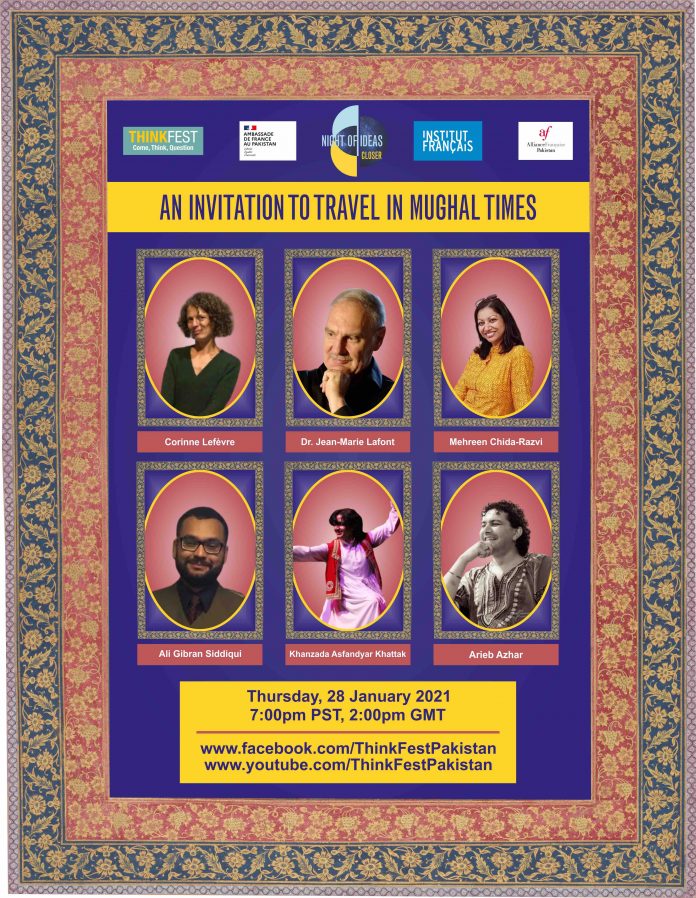ISLAMABAD, DNA): The 2021 edition of the Night of ideas (“La Nuit des idées”) took place on January 28th, 2021, with an online panel discussion inviting to travel into Mughal history, culture and arts, and to reflect on one of the first waves of global connections unleashed by the Mughals.
In a world marked by rising populism and nationalism, and where the COVID-19 pandemic has severely constrained domestic and international travels, this edition wanted to nourish our on experiences by learning from those of travelers and denizens of the Mughal Empire.
A perfect match with the goal of the Night of Ideas, a programme which aims at celebrating the stream of ideas between countries, cultures, topics and generations. Every year, it gives the opportunity, all around the world, to open up to the latest discoveries in knowledge and arts and to listen to the ones who contribute to bring more ideas to their field, and to take part in the discussion about the main issues
of our times.
For Pakistan this year, the “Night of Ideas” brought together six speakers from different backgrounds, four historians from the Mughal period and two artists, who exchanged on how the meeting of cultures and beliefs within and beyond the Mughal empire influenced the identity of the Mughal dynasty. They also highlighted how this meeting of cultures has been reflected in arts, including music and dance.
Dr. Mehreen Chida-Razvi engaged a passionate debate among the panelists and with the public, in a constant interaction. Prof. Corinne Lefèvre highlighted the important circulation of political, economic, and religious elites within the empire and to Central Asia and the Persian world.
Dr. A. Gibran Siddiqui discussed the trip of Khwâja Abd-ur-Rahim Jûybârî, Uzbek ambassador to the Mughal court. Khanzada Asfandyar Khattak presented the way the Mughal court appropriated the Kathak dance coming from the Hindu temples, incorporating Ottoman, Persian and Central Asian influences.
Arieb Azhar underlined the musical intermingling during the Mughal period, through the life of the musician Tansen. Dr Lafont explained the contacts between France and the Mughal dynasty, through the story of Augustin Hiriart, known as Augustin of Bordeaux, and his friendship with the emperor Jahangir.
















